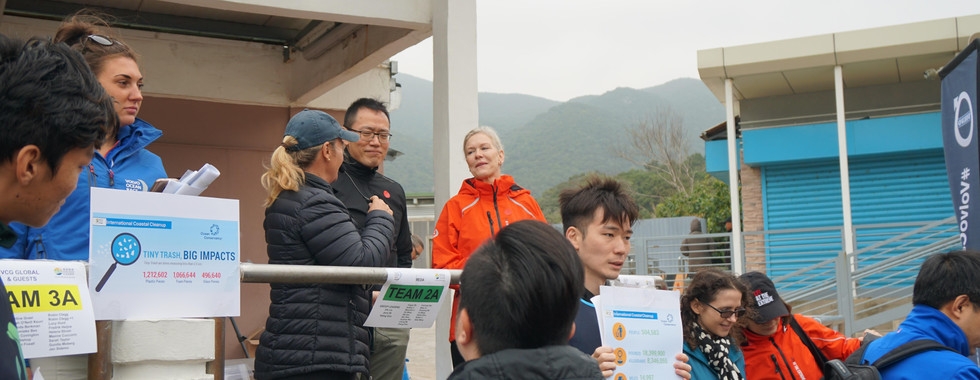Volvo Ocean Race 2017
- Jan 28, 2018
- 2 min read
Jan 28,2018
In addition to hosting the Volvo Ocean Race for the first time in Hong Kong, the Ocean Summit was also one of the highlights of the Sailing Carnival, which threw experts and environmental leaders together to discuss the global marine plastic pollution crisis. The Ocean Summit hoped to inspire individuals, businesses, governments and local communities to solve the problem of marine plastic pollution. The Ocean Summit Workshop would work with local firm and groups to explore how to introduce sustainability into their day-to-day business operations. Earlier data showed that Hong Kong dumped 136 tons of plastic bottles everyday, while 8 million tons of plastic were discarded in the ocean globally every year. If the situation continues, the amount of marine plastic rubbish will exceed the amount of fish in 2050.
Anne-Cevile Tunerm the Head of Sustainability Program at Volvo Ocean Race, said “All representatives from all over the world, which include sports, science, government, non-profit organizations and private groups, will gather at the Hong Kong Ocean Summit to raise their awareness of ocean protection, as well as promoting local solutions and inspiring Asian regions to work together to reduce marine litter.
The HKSAR Government announced that vending machines in government facilities would stop selling 1L or less of bottled water and strive to solve the global disaster of plastic pollution. In response to the Spanish government’s announcement at the Ocean Summit in Alicante, the United Nations’ Clean Seas Campaign was announced. TPDS and Volvo Car Group President and CEO, led more than 150 Volvo Cars employees and guests to challenge the clean beach movement.
During the event, TPDS professional driver had arrived at the hotel to pick up guests and set off to clean up the marine garbage at the Big Wave Bay Beach in Shek O. After listening to the conference and taking the materials of the day, we tried our best to clean up the rubbish on the beach. A large amount of garbage and plastic waste was collected on the same day, causing public concern about the pollution of marine plastic. In 2015, the EPD published the “Investigation on the Sources and Fates of Marine Refuse in Hong Kong” Report. 95% of marine litter came from local waste and 5% came from the Mainland and other places.
Through the coastal clean-up activities, TPDS and Volvo Ocean Race were working hard to keep the ocean clean and to understand the importance of protecting the marine ecology. Thanks to all participants for supporting Hong Kong marine protection!






















































Comments